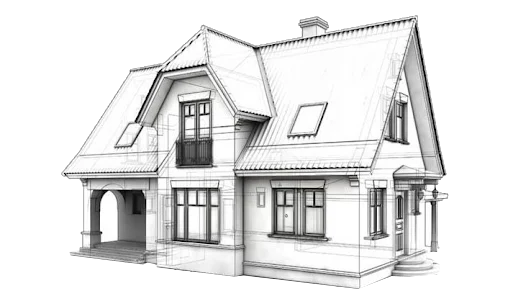
User Manual
A start to finish guide for your home inspection: when to schedule, what questions to ask, what to do with the results, and more!

Introduction: Thank you for choosing to use our residential home inspection services. This user manual will guide you through the process of scheduling a home inspection, understanding the inspection procedure, asking relevant questions, and making the most of the inspection results. By following these guidelines, you can ensure a comprehensive assessment of the property you are considering purchasing.
Section 1: Scheduling a Home Inspection 1.1 Timing:
- Schedule the inspection after your offer on the property has been accepted, but before the closing process begins.
- Allow sufficient time for the inspection report to be generated and reviewed before making any final decisions.
1.2 Finding an Inspector:
- Seek recommendations from real estate agents, friends, or family members.
- Ensure the inspector is licensed, certified, and has relevant experience.
- Verify that the inspector follows industry standards, such as those provided by the International Association of Certified Home Inspectors (InterNACHI) or similar organizations.
Section 2: Preparing for the Inspection 2.1 Access and Accompaniment:
- Ensure that the seller or their representative grants access to the entire property, including basements, attics, crawl spaces, and outbuildings.
- Accompany the inspector during the inspection to learn more about the property firsthand and ask questions.
2.2 Questions to Ask:
- Inquire about the inspector’s qualifications, experience, and areas of expertise.
- Ask if there are any specific concerns or areas of the property you should pay extra attention to.
- Request an estimated duration for the inspection process.
Section 3: During the Inspection 3.1 Observation and Documentation:
- Observe the inspector’s process and take notes on any potential issues or questions that arise.
- Feel free to ask questions during the inspection if something is unclear or requires further explanation.
3.2 Areas Covered:
- The inspection typically includes evaluating the structural elements, roofing, electrical systems, plumbing, HVAC systems, insulation, ventilation, and more.
- The inspector will assess the overall condition and identify any visible defects or potential safety hazards.
Section 4: After the Inspection 4.1 Reviewing the Report:
- The inspector will provide a detailed report highlighting their findings, including photographs and descriptions of any issues.
- Take the time to review the report carefully, paying attention to both major concerns and minor maintenance recommendations.
4.2 Consulting Experts:
- For significant issues identified during the inspection, consider seeking expert opinions or estimates from qualified professionals (e.g., electricians, plumbers, structural engineers) to assess the extent of repairs or replacements needed.
4.3 Negotiations:
- Use the inspection report to negotiate repairs, remedies, or price adjustments with the seller or their representative.
- Consult with your real estate agent or attorney for guidance on negotiating terms based on the inspection findings.
4.4 Reconsideration:
- If the inspection uncovers severe issues that affect your decision to proceed with the purchase, you may have the option to reconsider or withdraw your offer.
Conclusion: This user manual has provided you with an overview of the residential home inspection process. By following these guidelines, you can schedule a timely inspection, ask relevant questions, understand the inspection findings, and make informed decisions regarding the property. Remember, a home inspection is an essential step in the home buying process to ensure your investment aligns with your expectations and safety standards.
